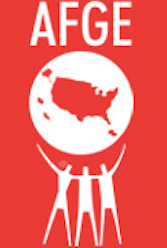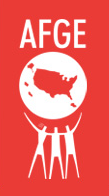BBG Watch
A union representing federal employees of the Broadcasting Board of Governors (BBG) posted online a commentary that it is “pleased that the new legislation protects the journalistic integrity of VOA news and maintains both the VOA and the OCB as federal entities.” VOA — the Voice of America — and OCB — the Office of Cuba Broadcasting which encompasses Radio and TV Marti — are the two federal entities within BBG whose journalists and other employees are represented by the American Federation of Government Employees, AFGE Local 1812.
In a “FAREWELL” post on his official Voice of America blog, VOA director David Ensor tossed barbs at members of Congress for what he described as “ill-conceived legislative and internal reform proposals.”
“VOA has also had to defend itself from sometimes ill-conceived legislative and internal reform proposals” and “we also know that if VOA were ever to be limited by law to just covering U.S. news, many of our key audiences would turn elsewhere for information they currently get from us,” David Ensor wrote in his farewell official blog post.
AFGE Local 1812 employee union appears to have taken a different position from the one advocated by outgoing VOA director David Ensor.
It also appears that contrary to Mr. Ensor’s claim, the proposed legislation would not prevent the Voice of America from reporting on all major international news and U.S. reactions to such news.
By most definitions, surrogate broadcasting refers to news and opinions which are presented by local journalists in foreign countries on their own behalf and on the behalf of individuals and groups whose freedom of expression may be restricted. Surrogate news programs are not presented on behalf of the United States even if they are funded by U.S. taxpayers to promote media freedom and freedom of expression abroad.
It does not appear that the new reform legislation would actually prevent VOA from reporting on foreign news, but the bulk of surrogate news reporting would be expected from non-federal, semi-private BBG entities, which include Radio Free Europe / Radio Liberty (RFE/RL), Radio Free Asia (RFA), and Middle East Broadcasting Networks (MBN – Alhurra TV and Radio Sawa).
Some members of the House Foreign Affairs Committee, which unanimously approved H.R. 2323, the United States International Communications Reform Act of 2015, believe that some BBG employees are working hard lobbying to build opposition to H.R. 2323 in the U.S. Senate.
We repost the AFGE Local 1812 commentary as a public service to BBG Watch readers. The original article can be found HERE.
###
Reform Redux
The first article of the governing VOA Charter requires the VOA to provide news to its global audience. The news broadcast by VOA is required by the Charter to be accurate, objective, and comprehensive. No one that we have met or spoken with has been interested in changing that. All have insisted that the news product should be consistent with accepted journalistic standards and believe that it is important that the news product of the VOA maintain its reputation as credible. There has been a lot of healthy debate about journalistic standards. These apply to the news product and a firewall should be maintained to make sure that those who produce the news can follow the truth wherever it may lead.
However, there is more to the VOA Charter than that first point. The second point of the Charter requires that the VOA “represent America”. That is a very clearly-stated requirement and unfortunately, it is the biggest failing of the organization at this time. Who are we as a country? What are we all about? What are our ideals that, to be truthful, we do not always live up to? Point #2 of the Charter also indicates that the VOA Services are not surrogate broadcasters. Our role is to present the United States and the principles upon which it was founded and the people who populate it. Members of Congress who fund the agency are not interested in funding just another news organization nor having the Voice of America operate as a surrogate for domestic foreign media. The Charter makes that abundantly clear. As VOA is America’s representative to a global audience, fulfilling this part of the Charter is probably the most crucial thing the VOA can do right now to ensure its survival.
The third point of the Charter is to present United States foreign policy and responsible discussion of those policies. The VOA does not make foreign policy. It is required to report on it so that other countries have a clear idea of what, in actuality, U.S. foreign policy is. To accomplish that objective and to give a full picture, VOA, of necessity, must consult with other government agencies whether the State Department, AID, NED, or the DOD and attempt to give a full picture by seeking out those who can, as the Charter states, responsibly discuss those policies, pro and con.
Some argue that covering points two and three of the Charter will taint the credibility of the news product. We believe that audiences are much more sophisticated than they are given CREDIT for. We believe that people listen, watch, and access the VOA with full knowledge that it is funded by the U.S. Government. Therefore, they expect that analysis and commentary produced by VOA will give the American perspective on world and domestic events. As long as VOA programming is factual and balanced, there is little reason to expect a problem. The global audience we seek is fully capable of accepting commentary reflecting the diversity of opinions in this country while expecting that VOA news will always be accurate, objective and comprehensive now, as it has been in the past.
We are pleased that the new legislation protects the journalistic integrity of VOA news and maintains both the VOA and the OCB as federal entities.

